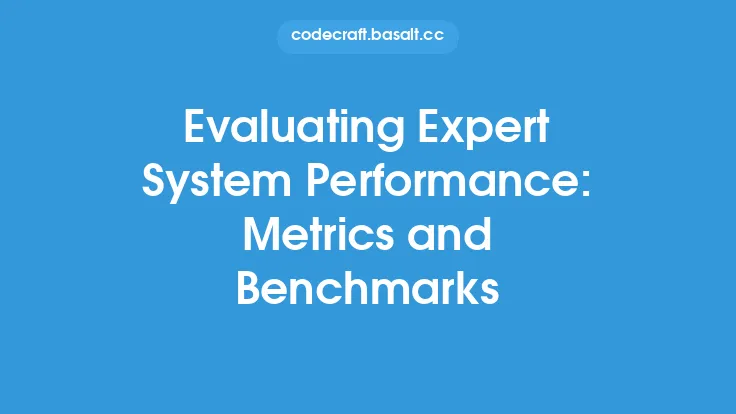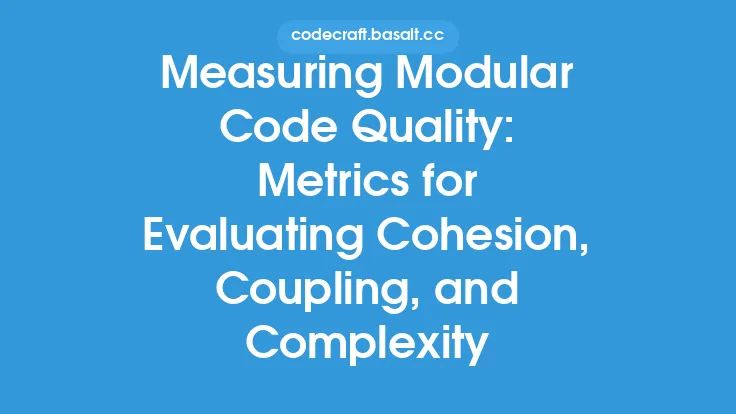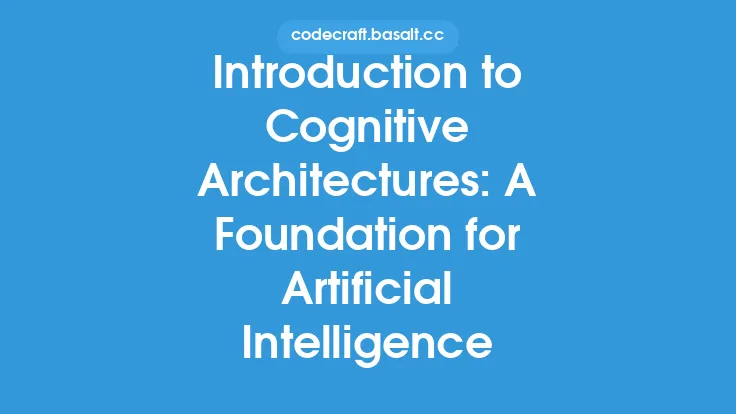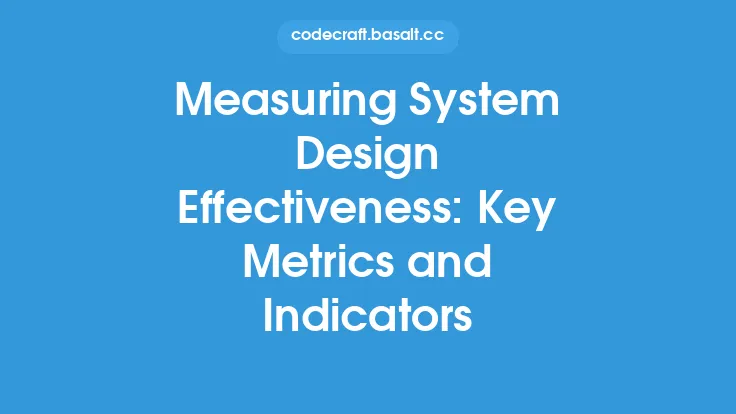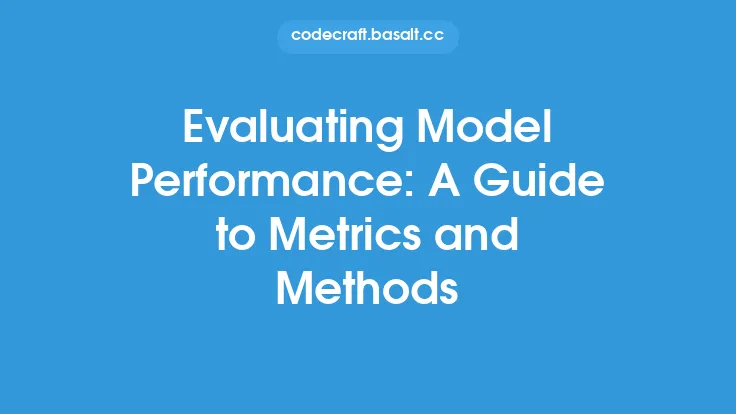Evaluating cognitive architectures is a crucial step in the development and refinement of artificial intelligence systems. Cognitive architectures are software frameworks that simulate human cognition and provide a structured approach to integrating multiple AI components. They play a vital role in enabling AI systems to reason, learn, and interact with their environment in a more human-like way. However, evaluating the performance and effectiveness of cognitive architectures is a complex task that requires careful consideration of various metrics, benchmarks, and best practices.
Metrics for Evaluating Cognitive Architectures
Evaluating cognitive architectures involves assessing their performance, scalability, and flexibility. Several metrics can be used to evaluate cognitive architectures, including:
- Computational complexity: This metric measures the computational resources required by the cognitive architecture to perform a task. It is essential to evaluate the computational complexity of a cognitive architecture to ensure that it can be deployed on a variety of platforms, from small embedded systems to large-scale distributed computing environments.
- Memory usage: This metric measures the amount of memory required by the cognitive architecture to store its knowledge and perform tasks. Evaluating memory usage is crucial to ensure that the cognitive architecture can be deployed on systems with limited memory resources.
- Response time: This metric measures the time it takes for the cognitive architecture to respond to a stimulus or complete a task. Evaluating response time is essential to ensure that the cognitive architecture can interact with its environment in real-time.
- Accuracy: This metric measures the accuracy of the cognitive architecture's decisions or actions. Evaluating accuracy is crucial to ensure that the cognitive architecture can make informed decisions and take effective actions.
- Robustness: This metric measures the cognitive architecture's ability to handle uncertainty, noise, and exceptions. Evaluating robustness is essential to ensure that the cognitive architecture can operate effectively in real-world environments.
Benchmarks for Evaluating Cognitive Architectures
Benchmarks play a crucial role in evaluating the performance and effectiveness of cognitive architectures. Several benchmarks can be used to evaluate cognitive architectures, including:
- Cognitive decathlon: This benchmark evaluates a cognitive architecture's ability to perform a variety of cognitive tasks, such as reasoning, learning, and decision-making.
- AI completeness: This benchmark evaluates a cognitive architecture's ability to integrate multiple AI components, such as natural language processing, computer vision, and machine learning.
- Scalability: This benchmark evaluates a cognitive architecture's ability to scale up or down to accommodate changing computational resources or task requirements.
- Flexibility: This benchmark evaluates a cognitive architecture's ability to adapt to changing task requirements or environments.
- Real-world tasks: This benchmark evaluates a cognitive architecture's ability to perform real-world tasks, such as image recognition, natural language processing, or decision-making.
Best Practices for Evaluating Cognitive Architectures
Evaluating cognitive architectures requires careful consideration of several best practices, including:
- Define clear evaluation criteria: It is essential to define clear evaluation criteria that align with the cognitive architecture's goals and objectives.
- Use multiple metrics and benchmarks: Using multiple metrics and benchmarks can provide a more comprehensive understanding of the cognitive architecture's performance and effectiveness.
- Evaluate the cognitive architecture in different contexts: Evaluating the cognitive architecture in different contexts, such as different environments or task requirements, can provide insights into its robustness and flexibility.
- Compare with other cognitive architectures: Comparing the cognitive architecture with other cognitive architectures can provide insights into its performance and effectiveness relative to other approaches.
- Continuously refine and update the evaluation methodology: Continuously refining and updating the evaluation methodology can ensure that it remains relevant and effective in evaluating the cognitive architecture's performance and effectiveness.
Challenges and Limitations of Evaluating Cognitive Architectures
Evaluating cognitive architectures is a complex task that poses several challenges and limitations, including:
- Lack of standardization: The lack of standardization in cognitive architectures and their evaluation methodologies can make it difficult to compare and contrast different approaches.
- Complexity: Cognitive architectures are complex systems that can be difficult to evaluate and analyze.
- Context dependence: Cognitive architectures can be highly context-dependent, making it essential to evaluate them in different contexts and environments.
- Limited understanding of human cognition: The limited understanding of human cognition and its complexities can make it challenging to develop effective evaluation methodologies for cognitive architectures.
- Balancing multiple objectives: Cognitive architectures often have multiple objectives, such as performance, scalability, and flexibility, which can be challenging to balance and optimize.
Future Directions for Evaluating Cognitive Architectures
The evaluation of cognitive architectures is an active area of research, and several future directions are being explored, including:
- Developing more comprehensive evaluation methodologies: Developing more comprehensive evaluation methodologies that can capture the complexities of cognitive architectures and their performance.
- Using machine learning and data analytics: Using machine learning and data analytics to evaluate and optimize cognitive architectures.
- Developing more realistic and challenging benchmarks: Developing more realistic and challenging benchmarks that can simulate real-world environments and task requirements.
- Evaluating cognitive architectures in multi-agent systems: Evaluating cognitive architectures in multi-agent systems, where they can interact with other agents and systems.
- Developing more transparent and explainable evaluation methodologies: Developing more transparent and explainable evaluation methodologies that can provide insights into the cognitive architecture's decision-making processes and performance.
